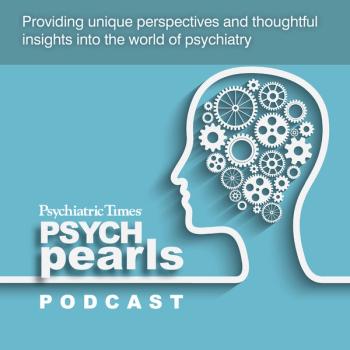
Although estimates vary, patients with cancer are at least twice as likely to die by suicide than people who do not have cancer. By identifying those at greatest risk, these treatment modalities can help support patients.

Although estimates vary, patients with cancer are at least twice as likely to die by suicide than people who do not have cancer. By identifying those at greatest risk, these treatment modalities can help support patients.

Early-life stress can modify an individual's genetic code, leading to mental health problems later in life. But by understanding the science of epigenetics, psychiatrists can treat these conditions, and prevent intergenerational trauma.

Higher lithium levels are associated with a greater risk of long-term kidney harm and more frequent depressive episodes. This bipolar update reviews ways to minimize renal side effects.

Widely recognized as the prime mover behind the psychosomatic medicine movement, Helen Flanders Dunbar, MD, PhD. was a clinician, writer, and founder of the American Psychosomatic Society.

Overwhelmed and encumbered agencies are increasingly unable to provide critical services for LGBTQ youth, leaving them powerless in impeding a downward spiral into homelessness and associated negative ramifications. There are 5 ways psychiatrists can help.

Does it matter which came first, the depression or the heart disease?

Collaborative care guides care across disciplines, including psychology, psychiatry, and primary care. The goal is to change practice, build community, and identify health professionals needing the most assistance.

Antipsychotic-induced weight gain evolves over time, leads to chronic complications, and is very difficult to reverse. Pharmacologic interventions used to tackle weight gain are modestly effective and worth considering in certain cases.

Activation of the maternal immune system during pregnancy is associated with increased risk of neurodevelopmental disorders in children. A recent review and meta-analysis examine the link in ADHD.

A study estimates the frequency and clinical correlates of GI symptoms during depressive episodes in a large, nationwide sample of patients with MDD in China.

General medical illness can contribute to affective disorders in elderly patients. Treating the medical illness is an integral part in treating depression in these patients.

Key considerations for healthcare providers seeking to manage their patients’ insomnia.

In approximately half of patients with Huntington disease, symptoms of depression, irritability/aggression, executive dysfunction, psychosis, cognitive decline, and dementia present long before progressive motor symptoms.

Millions of Americans have a skewed view of their own bodies, leading to serious depression and suicidality.

A case in Germany overturns old ideas about conversion disorders.

While psychotropic medications for schizophrenia, bipolar disorder, and other psychiatric disorders can cause weight gain, patients can take small steps to improve their health.

Aerobic exercise has been found to exert a positive effect on global cognition and some, but not all, cognitive domains in patients with schizophrenia.

A myriad of neuropsychiatric symptoms result from folate deficiency, including cognitive impairment, insomnia, psychosis, depression, peripheral sensory deficits, and weakness. Treatment and prevention strategies are discussed.

Patients with cancer are at increased risk for both suicidal ideation and completed suicide. The authors discuss factors contributing to this increase in both biological and psychological realms.

Neuropsychiatric manifestations of Huntington disease can present decades before the motor symptoms become apparent, making the role of the psychiatrist all the more important.

In this podcast, Drew Ramsey, MD, an nutritional expert and psychiatrist discusses the importance of diet and nutrition in mental health and wellness.

The rise and fall of a brilliant medical pioneer.

A case report and literature review of intrathecal methotrexate-induced mania.

How does relapse prevention for depression in patients with coronary heart disease differ from relapse prevention in those with depression alone? That question and more answered.

Some commonly used drugs and narcotics have serious cardiovascular effects.